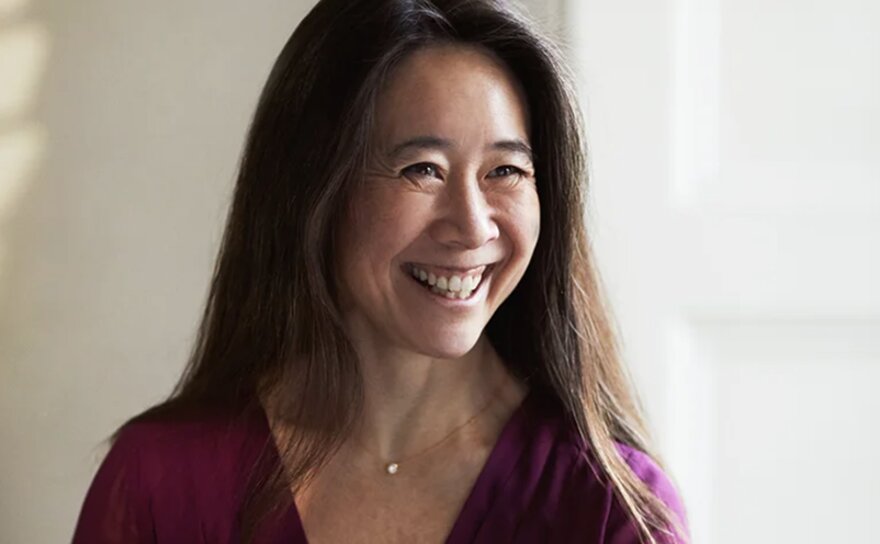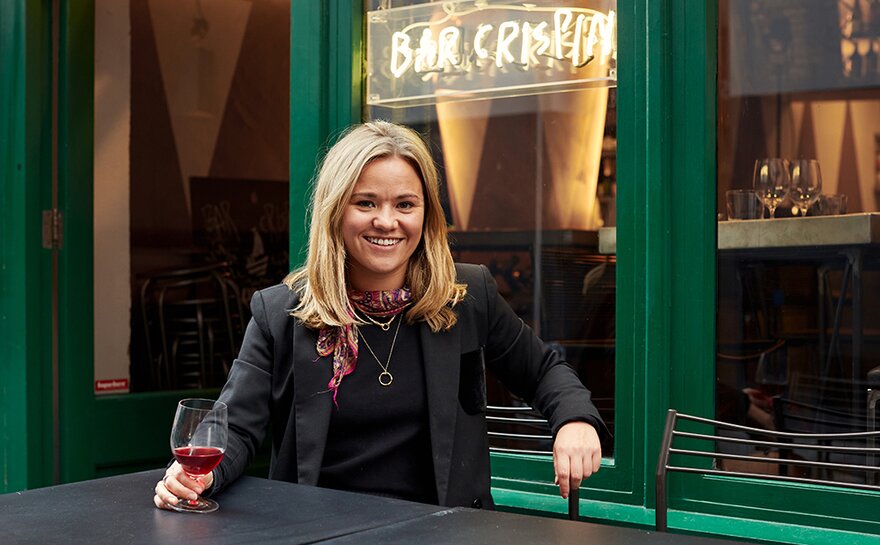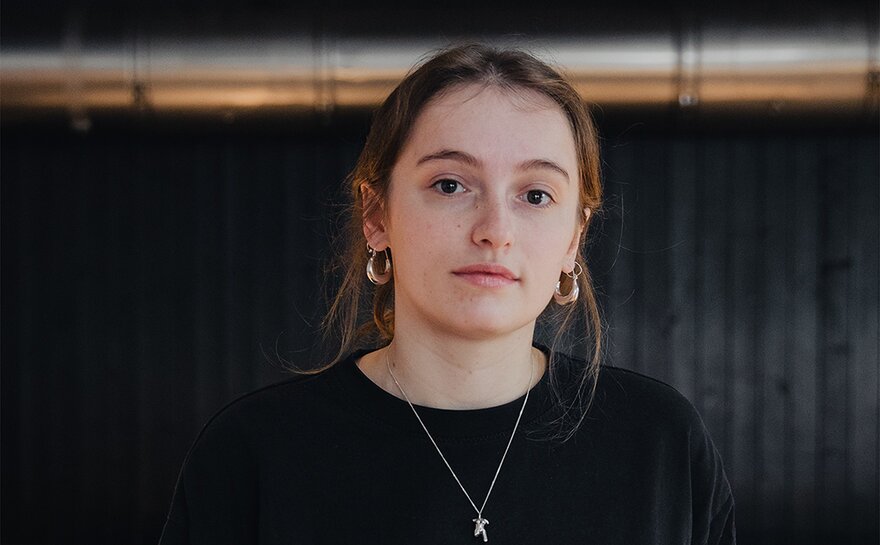Against a backdrop of female sommeliers saying the wine industry has a clear gender bias, a movement to celebrate and encourage women is gaining ground
Following the publication of the Women in Wine report in October 2023, the industry has been alerted to a series of challenges they couldn't ignore, according to wine collector and industry expert Queena Wong.
The results from the survey, conducted among 726 women across the drinks trade by Proof Insight, speak for themselves: 78% feel that sexism and gender bias is an issue in the UK wine industry, 33% have faced harassment while working, and 44% have considered leaving the wine industry due to the challenges they faced.
Informed by these statistics, Wong held a meeting with more than 20 leading industry bodies, including the Wine and Spirit Trade Association, the Wine & Spirit Education Trust, and the Drinks Trust, which ended with a commitment to address the issues raised.
"Everyone agreed that something needs to be done, but it is a beast," she says. Wong is now leading the next stage of the process, which involves building a community through Curious Vines, her almost 1,000-strong female wine network, and maintaining regular correspondence with stakeholders, who are regrouping with their respective boards.
She remains confident the survey will provide a catalyst for change because of the strength of the data, which counts as a representative sample of the population.
"It's irrefutable," she says. "Some people – even women – have said it [the views expressed in the survey] was not their experience. That's great, but I'm here to protect and stick up for the majority that are saying there is an issue," she says.
There has also been a renewed urgency to keep the momentum of the survey going after the Worker Protection (Amendment of Equality Act 2010) Act 2023 received Royal Assent in October 2023. "The bill protects workers from harassment, so it will become a duty for an employer to put in place policies and structures. It couldn't have been more timely to give an incentive to companies to take this really seriously," Wong adds.
In the midst of this, she is keen to celebrate the "very uplifting, positive environment" of female sommeliers.
"While we are waiting for proper frameworks to be put in place – because I don't know how long this is going to take, and culture change for the industry is not going to happen overnight – what I can do is provide a place for women to feel like they are not alone. There is support," she says.
The Caterer spoke to six female sommeliers and drinks professionals about their experiences in the industry, any advice they had for women joining the trade, and their thoughts on where it is headed.
Go to more tastings
Alexandra Price, head of wine for wine bar and restaurant collection the Crispin Group, encourages her team to attend tastings to build their knowledge. When she first joined the industry 10 years ago, she confesses it took her a long time to settle into the tasting circuit, because she found it an incredibly daunting atmosphere, often caused by the lack of women at these events. But now, a decade on, there has been an explosion in tasting groups, with gatherings such as Hannah Crosbie's Dalston Wine Club in London, which is aimed at younger drinkers and where people can learn in a much more relaxed and confident way.
Price organises tastings of her own, and arranged one with the Bar Crispin team at Antidote in London's Carnaby in January. She gives her sommeliers three questions to consider: "The first was work out which producers we have on the list; the second was to find an interesting fact about them; and thirdly, to pick your favourite wine and write a tasting note." Agustina Basilico Miara, beverage manager at Toklas in the Strand, London, also hosts her own training sessions for staff – Wine 101 – during quiet periods in the restaurant.
It's something she used to organise while at Hicce in London's King's Cross.
"For me, it's about trying to break barriers," she says. "Some people are uncomfortable and scared to say, ‘I think a wine tastes like that'. I'm using the base knowledge of the Wine & Spirit Education Trust, but we're also creating our own words and vocabulary, which may be a bit more unorthodox."
For example, if a team member tastes mint in a wine, Miara will encourage them to express that and then guide them towards a more specific tasting note, such as eucalyptus. Sandia Chang, co-founder of the two-Michelin-starred Kitchen Table in London's Bloomsbury, says she is keen to provide tastings for working mothers in hospitality. Chang used to host wine industry "party gatherings" twice a year at her hotdog and Champagne bar Bubbledogs in London's Fitzrovia, which she ran from 2012 until the pandemic.
"There was no official invite, it was just a ‘tell your friends' kind of thing," she says. "There would be a theme, such as sparkling wine, and everybody would bring a bottle of sparkling wine blind, and I would provide snacks," she recalls. But since having two children in the last four years, she has been renegotiating the balance between motherhood, running a restaurant and going to tastings.
"In hospitality, the hardest thing is the fact there's no night care, so my next new project is to have parents in the industry be able to go to these gatherings with their kids," she says. "There are working mothers out there, especially in our industry, who still want to learn and connect with colleagues."
Seek jobs where you feel represented
Miara has always looked to work with "incredible women" or at least in hospitality establishments with a 50-50 gender split in management. When she first moved to London from Argentina, she joined Okan in Brixton, founded by Moto Priestman. Hicce, of course, was owned by Pip Lacey, while Toklas is just "three men and the rest are female".
Price from Crispin Group adds: "I've been very lucky to have worked for a company like Crispin, which has a very young founding team. I've been given an amazing amount of creativity and trust in my role that has allowed me to explore. I don't know whether that experience would be the same if I had been in a corporate, traditional company, but I would like to think that things have improved a lot."
Eloise Pontefract, head of drinks and sustainability at Silo in London's Hackney, says her experience enabled her to build contacts with some amazing women. "I suppose wine- making is still relatively up and coming, so people are able to find their own path, whether that's in vineyard management, winemaking or the distribution side of things," she says. Her winemaking career also unlocked her passion for fermentation across both alcoholic and non-alcoholic drinks, which has cemented her position at Silo. "I'm keeping it broad by saying I'm interested in fermentation, which brings in everything: wine, cider, beer, soft drinks and also food. It's been a really nice lens through which to discover flavours and find other people in the industry," she says.
Mentor each other
Maddalena Sommo, head bartender at Claridge's in London's Mayfair, says there are so few female bartenders in the UK that if she comes across their CV "they are like gold". In fact, when she joined the hotel four years ago as a barback, she was the only woman on her team.
"I'm always excited to see them and do interviews. Unfortunately, we don't receive many CVs from women; when you find a female bartender, you had better keep her forever," she says.
In the same vein, Emma Denney, head sommelier at Claridge's, reveals she felt supported by female colleagues during sommelier competitions: "One of my friends, Melania Battiston, who was at Medlar at the time, forced me to enter. Even if you don't get through to the finals, it's just a good experience because it costs nothing and you get to meet other people," she says. "There's a few of us in the industry in London and we definitely try to push each other. Agnieszka [Swiecka, head of wine at Audley and Mount Street restaurant] helped me out with a lot of tastings."
Don't rush to settle
Denney says that there is nothing wrong with taking some time to figure out where to work. Having been a part of the wine world for the past 11 years across both New Zealand and the UK, she has come across places that have provided opportunities for growth, even if they weren't quite right overall.
"You never want to be the smartest person in the room – you always want to be learning," she says. In fact, Price confesses she may not have found her current role had she turned down a job from Beaverbrook country house hotel in Surrey. She had accepted the role in 2019, not realising it was more of a restaurant manager position, which proved to be a complete contrast to her previous experiences in the cellars of Annabel's in London's Mayfair or at Burgundy specialist Domaine Direct.
"I thought it was going to be more back of house, but then it actually worked in my favour and I enjoyed it a hell of a lot. That was my first fully customer-facing role. I don't think I'll be where I am today if I hadn't done it."
Should we use the term female sommeliers?
The addition of the word female in many hospitality roles – such as female chef or female sommelier – continues to elicit a diverse response. Chang says she doesn't see the need to label roles by gender, because "we all should be treated the same – that's what we eventually want, right?".
Denney agrees that the term can be a bit of a "double-edged sword" because it shouldn't have to mean female sommeliers are any different from a male sommelier, but does not believe it's the "worst thing in the world, because it's a good thing to help bring visibility to the role".
"It is a fantastic career path, but thenat the same time, I'm not special because I'm a woman in this role," she adds.
Wong adds the decision to use the term female sommelier or not is down to personal choice. "There are some female bodies that say we should be dropping the female reference because a chef is just a chef, not a female chef, but my view is when there is strong gender bias, I'm really proud to say I'm a female wine collector, because there's not many of us."
Is the wine world getting better for women?
Alexandra Price from Crispin Group believes the industry "definitely feels more even" now compared to just 10 years ago.
"It's probably easy to look back and think it was all nice and rosy, but I think the first four years were very tough. I remember asking for pay rises and not receiving them, or never being given the wine list at wine industry dinners," she admits.
Chang remembers moving from more open-minded hospitality establishments in New York and Copenhagen into a very traditional restaurant in London, which she now sees as "probably the worst example ever for me to walk into" so early on in her career in the UK.
Although the wine industry has since become more welcoming to women, she says the hospitality industry as a whole needs to tackle its perception problemif it hopes to attract a more diverse talent pool.
"Because it's mostly men, it makes it a little bit harder for women to be like: ‘Oh, that's a cool career, actually'. It's similar to the construction industry."
Denney adds that she has personally experienced the increased visibility of women in the wine trade over the past few years. For a time, there were only a handful of women at tastings, but she is now able to take her team with her, which comprises three sommeliers, two of whom are women. "It wasn't on purpose, but it just kind of ended up that way," she says.
Pontefract points out it is often the customers who fail to take female sommeliers seriously, rather than the industry itself: "There's still a bit of a perception, particularly from the public. Some people can't get it out of their heads – they are looking at the man going ‘Is he the sommelier?', which is kind of frustrating. But there's lots of support from people within the industry."
Continue reading
You need to be a premium member to view this. Subscribe from just 99p per week.
Already subscribed? Log In












